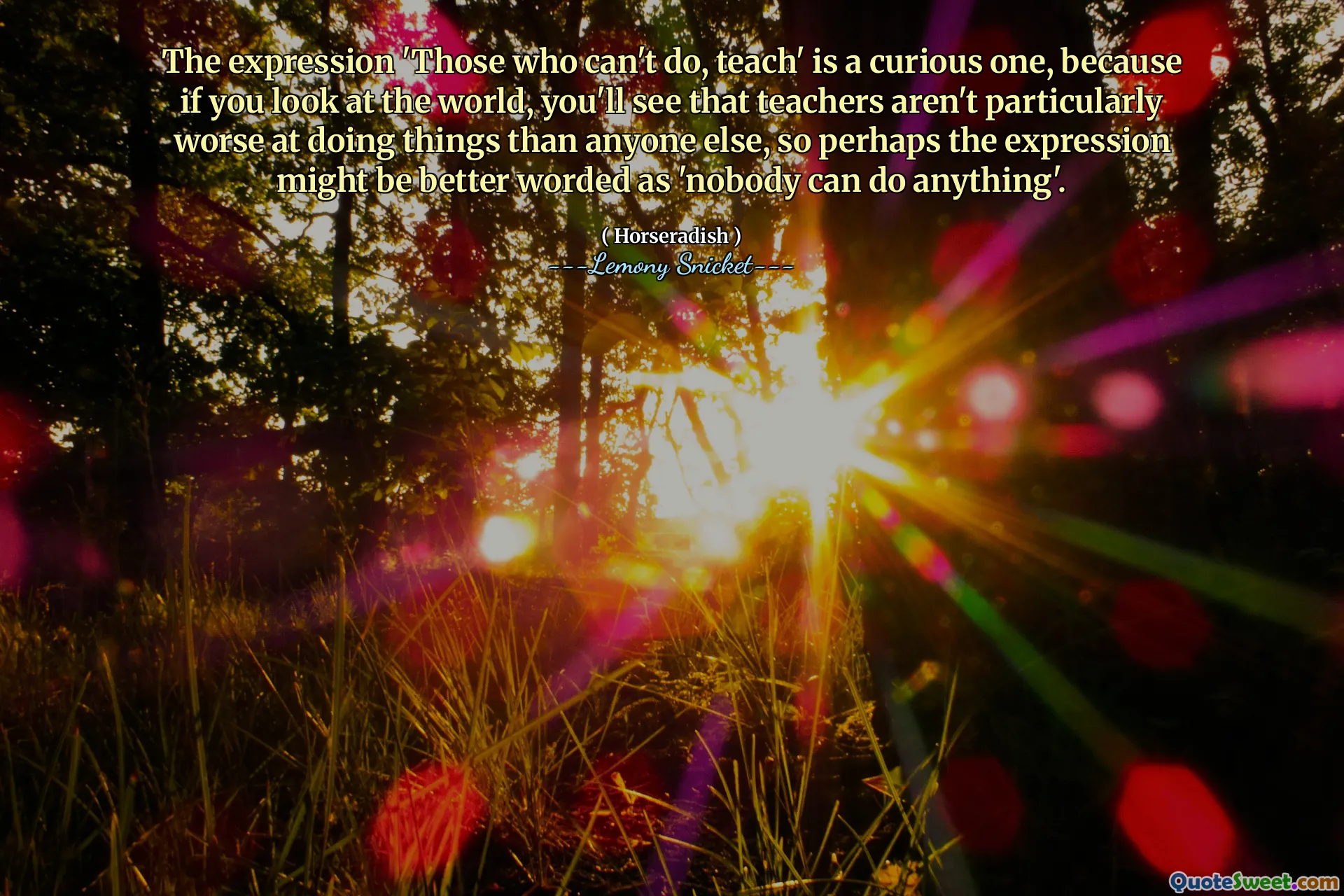
The expression 'Those who can't do, teach' is a curious one, because if you look at the world, you'll see that teachers aren't particularly worse at doing things than anyone else, so perhaps the expression might be better worded as 'nobody can do anything'.
This quote challenges a common stereotype that suggests educators are somehow less capable or less skilled than practitioners in their fields. At first glance, the phrase 'Those who can't do, teach' appears to diminish the value and competence of teachers, implying that teaching is a fallback or a less prestigious profession for those unable to succeed elsewhere. However, a deeper reflection reveals that this stereotype is overly simplistic and undervalues the multifaceted nature of teaching. Teachers serve as catalysts for knowledge, inspiration, and critical thinking—roles that require immense skill, patience, and dedication. The assertion that teachers are not worse at doing things than anyone else highlights that capable individuals can excel both in practical skills and in educational roles. The humorous extension—'perhaps nobody can do anything'—suggests a broader philosophical point: that efficacy and action are complex, collective issues rather than individual shortcomings. It pushes us to reconsider our judgments of competence, recognizing that many skills are nuanced and context-dependent. Additionally, it illuminates how societal narratives shape perceptions of worth and ability. Teachers, in particular, often face undervaluation despite their critical societal function. This quote prompts us to reevaluate assumptions, encouraging humility and a recognition of the importance of diverse roles in society. Ultimately, it points to a more understanding and nuanced appreciation of human capability, urging us to see beyond stereotypes and appreciate the effort and skill involved in all meaningful pursuits.






